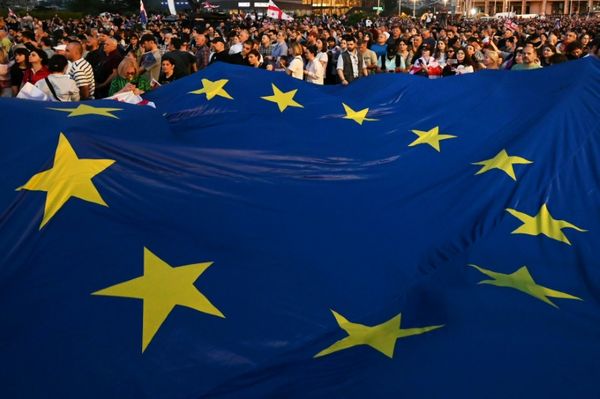
Tackling issues such as global inequality and the Syrian refugee crisis is difficult, former US secretary of state Madeleine Albright said on Sunday – even more difficult than fighting the cold war.
Albright, who served as ambassador to the United Nations and was secretary of state under Bill Clinton, spoke as part of a panel at Wellesley College. The divisions brought out by the Syrian refugee crisis, she said, highlighted the issue of global inequality.
“In order to have equality, you can’t all of a sudden be separating people into smaller and smaller groups that actually are proud of their identity but hate the people next door,” she said.
According to Albright, no one “can even figure out who should sit at the table to solve the problem”.
“I was in a meeting,” she said, “in which I turned to the person next to me and said: ‘The cold war was a piece of cake in comparison to this. The world was divided between the red and [the] red, white and blue.’
“At this point it’s hard to keep track of who is who and the institutional structures are not helping equality at all, in terms of trying to figure it out.”
Christine Lagarde, the managing director of the International Monetary Fund, also spoke at the event. Countries that help integrate refugees into their economies could see benefits down the road, she said. Their integration could lead to increases in demand and consumption, she said. Within the European Union, countries could see 0.2% of growth.
“You will say this is not much, 0.2%. Well, in countries, where growth is 1.2% to 1.5%, another 0.2% is a plus. But that music is not going to be heard at the moment. One day it will be heard, I hope. We will continue singing it.”
Despite the turmoil in global markets, Lagarde said she did not think the world was entering another recession.
“We still forecast a growth of 3.4% in 2016 and possibly of 3.6% in 2017,” she said. “Now, granted, a forecast for 2017 in the current situation is a bit of stretch, but we don’t see a recession.
“We see not as good growth as we would like see to respond to 200 million people who are looking for jobs at the moment, to make sure that advanced economies can actually provide donor packages that would help [developing] countries.”
Lagarde said another way to help reduce global inequality would be by reducing the gender wage gap. “Inequality, just like poverty for that matter, is sexist,” she said.
Lagarde went on to praise Barack Obama’s executive order that requires companies with more than 100 employees to disclose salaries in terms of gender, ethnicity and race. In 2014, US women earned 79 cents for every dollar men earned. When Obama took office, that number was 77 cents.
“Now calculate how long it would take to get to one dollar each,” Lagarde said. Cupping her hands around her mouth as if to make sure that everyone could hear her, she said: “Eighty years.”







